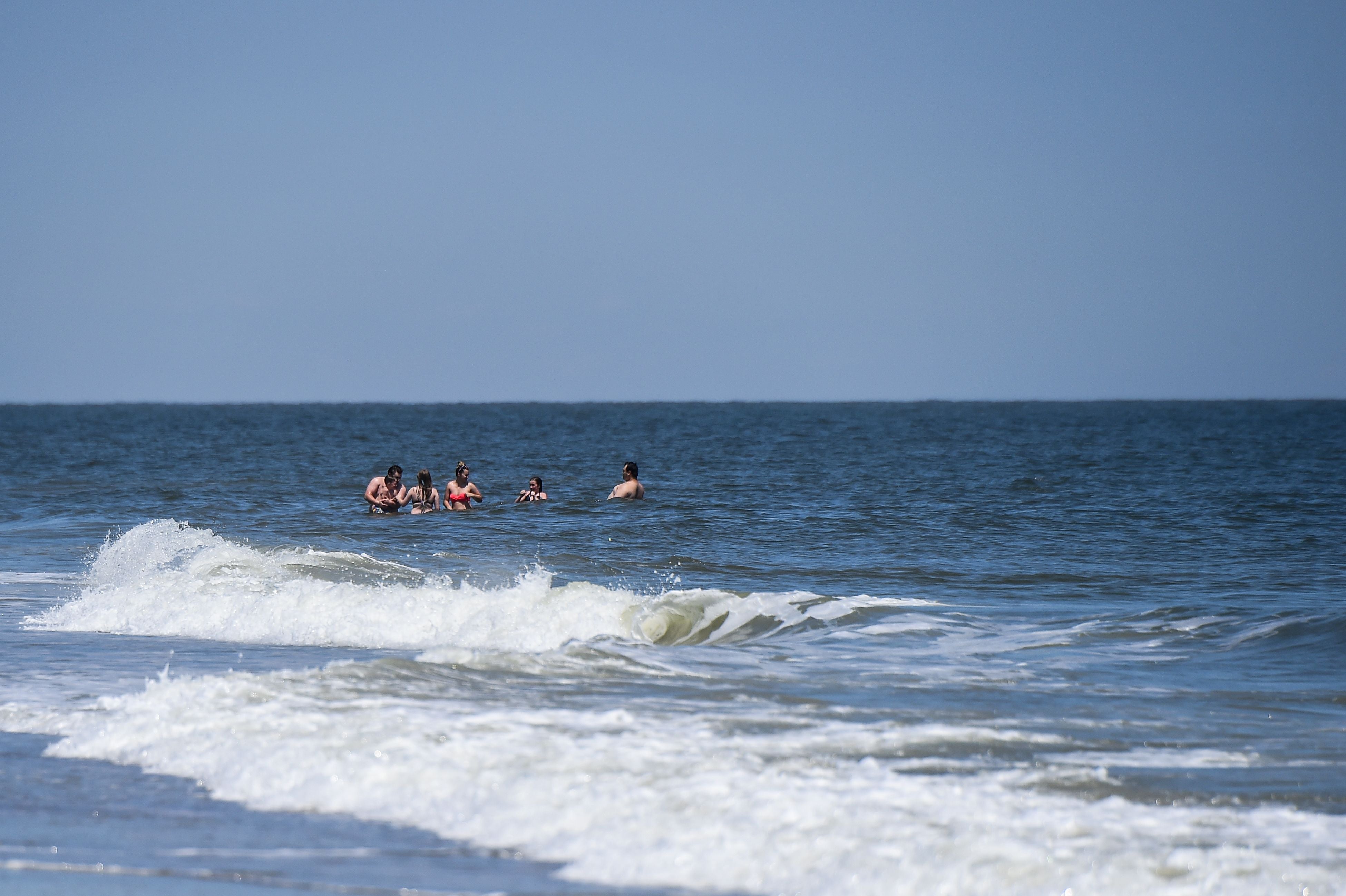Georgia surf instructor attacked by shark during lesson returns to beach
The surfer said he isn’t mad at the shark for biting him

A surf instructor in Georgia who was bitten by a shark earlier this week has returned to the beach. And as surfers say, he’s stoked to be back.
“It is important to note that while human beach use and ocean activities have greatly increased due to the growing population and greater popularity of surfing, swimming, and scuba diving, shark incidents have not increased proportionally,” the California fish and wildlife department says on its website. “This is even more evident when looking at incidents where a person was injured.”
"We had to skip yesterday due to my… another treatment – my boo boo,” Atsushi Yamada said in a video he posted to Facebook. “But, I am so lucky now to be like this. Still I can share much aloha.”
Mr Yamada, who guys by the nickname “Hot Sushi” and runs Hot Sushi’s Surf Camp Aloha, was bitten by a shark on Tuesday in the waters off Georgia’s Tybee Island. He was rushed to the hospital to treat extensive injuries to his left leg, including consulting with a plastic surgeon. Still, that didn’t dampen the surfer’s enthusiasm to be back beachside, even though he has to wear a protective boot for the time being.
In the video, he can be heard encouraging his students to throw up a hang loose or shaka hand sign and say “konichiwa,” Japanese for hello.
The attack occurred when Mr Yamada paddled out to the edge of the surf zone, where one of his students had drifted too far away from the beach. She eventually caught a wave in, and not longer after, the surf instructor said it felt like someone had taken a baseball bat to his leg.
"I was just so thankful that it wasn’t her and I was so thankful she took the wave,” he told WJCL, adding that he doesn’t bear any animus towards the shark, since surfers are the ones using their homes and hunting grounds for recreation. "We are the ones, the intruders, the strangers.”
Despite the ever-growing numbers of people using the ocean for recreation, shark attacks are extremely uncommon and most aren’t fatal. According to Florida Museum of Natural History’s International Shark Attack File, there were 57 total unprovoked shark attacks across the world in 2020, and 13 fatalities.
“Long-term trends show a decreasing number of annual fatalities,” the museum wrote, announcing last year’s data. “Year-to-year variability in oceanographic, socioeconomic and meteorological conditions significantly influences the local abundance of sharks and humans in the water.”
Surfing, however, makes this extremely rare risk slightly more likely. People using the water for board sports experienced 61 per cent of the shark attacks in 2020. They’re at higher risk because they often spend time in the surf zone, where incoming waves break, and so do sharks.
Still, despite longstanding cultural paranoia about sharks, authorities warn that people shouldn’t be very worried about them.
Join our commenting forum
Join thought-provoking conversations, follow other Independent readers and see their replies
Comments
Bookmark popover
Removed from bookmarks